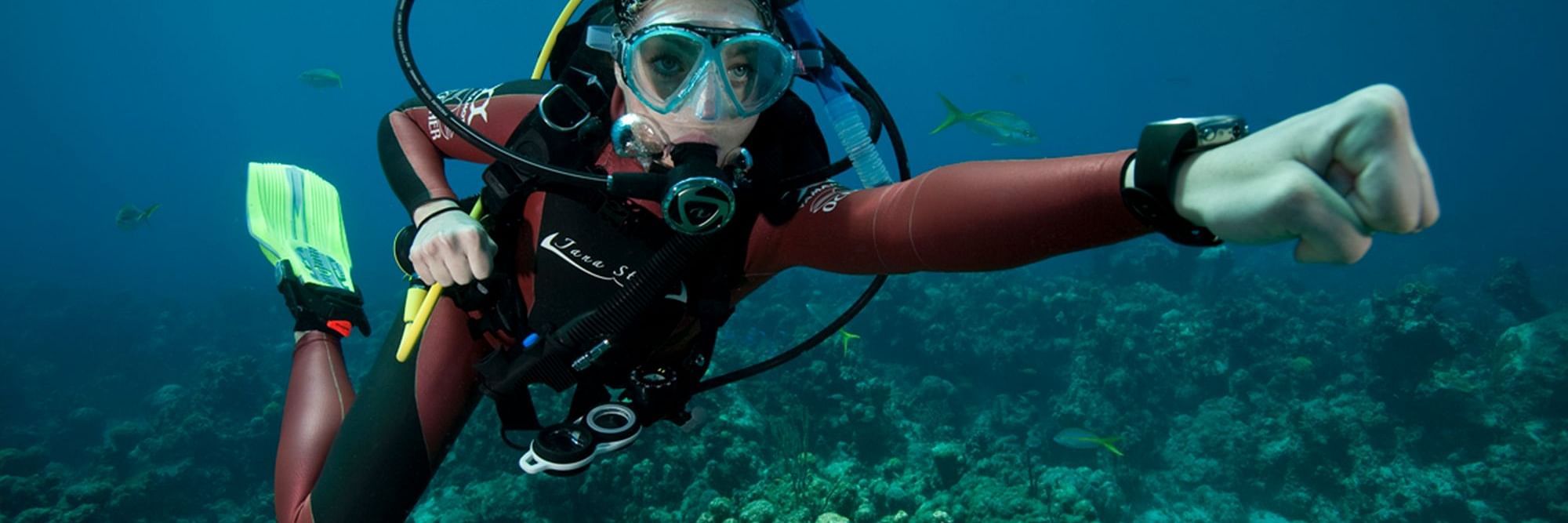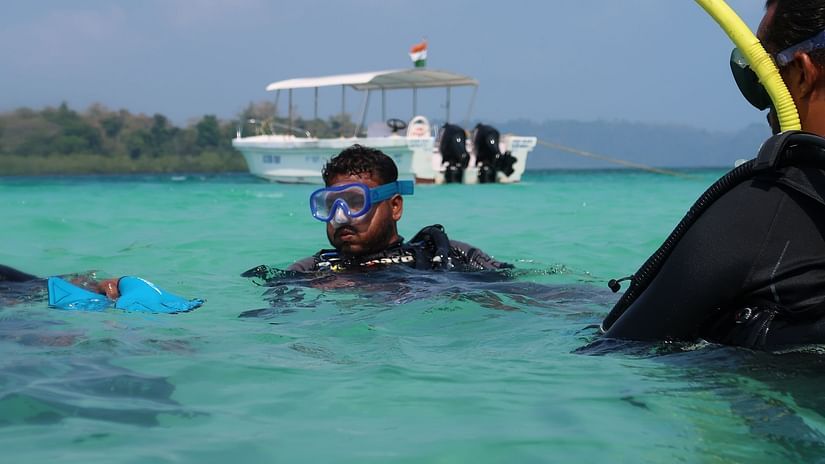Anyone with the curiosity to explore and the will to overcome her/his fears or limitations can dive. Although, as with many other sports, scuba diving too has safety considerations. Firstly, you must go through the
medical form to see if you have any conditions that may require you to consult a doctor before diving. For instance, cardiovascular and respiratory ailments predispose you to certain risks with scuba diving, which means you would need a valid written clearance by a doctor declaring you medically fit for scuba diving. The doctor would assess factors like the effects of medications wearing off sooner under pressure, or if you’ve had surgery, whether you’ve had ample time to allow the injuries or stitches to heal before diving.
Generally, divers rely on their feet and finning to propel themselves underwater. However, people with paraplegia can dive using their arms and specialised webbed gloves for their hands. Diving requires the use of at least one hand to control the scuba equipment and to communicate using hand signals. With adequate training, you can master all the skills using only one hand. Not everyone would have the same problems. So I suggest that you discuss with an instructor at Barefoot Scuba the specific challenges you may have to face and overcome, to understand if diving is something for you.






